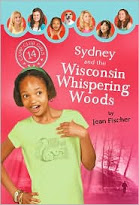
It was a dark and stormy night.
When you read that first sentence, did you imagine Snoopy at his typewriter sitting on his doghouse? You might be surprised to learn that the phrase it was a dark and stormy night wasn’t penned by Charles Schultz, but rather by the English novelist and playwright Edward George Bulwer-Lytton. That’s right. It’s a phrase and not a sentence. It begins Bulwer-Lytton’s 1830 novel, Paul Clifford.
Here is the sentence in its entirety: "It was a dark and stormy night; the rain fell in torrents--except at occasional intervals, when it was checked by a violent gust of wind which swept up the streets (for it is in London that our scene lies), rattling along the housetops, and fiercely agitating the scanty flame of the lamps that struggled against the darkness."
Wow! Now, that’s a mouthful of words. We have rain falling in torrents, except at occasional intervals. Then the author interrupts the rain to tell us that the setting is London. After that, the wind rattles along the housetops and the lamp flames struggle against the darkness -- Who cares about the street, the housetops, or the lamp flames? This run-on sentence does nothing to pull readers into the story or even hint at why they should keep on reading.
It was a dark and stormy night is often quoted and sometimes ridiculed. It is the sentence that inspired the English Department of San José State University to create The Bulwer-Lytton Fiction Contest, an annual contest in which entrants compete to write the first sentence to the worst of all possible novels, in other words a sentence that is really bad.

So why am I telling you this? Often, I am asked to read a beginning writer’s manuscript. Almost as often, I see inexperienced writers make the same mistake: their first sentences don’t grab the reader’s attention. These sentences either ramble on with little substance, as in the example above, or they are short and uninteresting. I can’t stress enough the importance of forming an engaging opening sentence, especially when writing for children. Powerful first sentences leave readers with a question that can only be answered by moving on to the next sentence, then the next, and all the way to the story’s end. Here are some good examples of first sentences from children’s books.
- "It was a late Sunday evening and Ratbridge stood silver gray and silent in the moonlight." Here Be Monsters! The Ratbridge Chronicles by Alan Snow
- “It was a missing piece.” The Missing Piece by Shel Silverstein
- "I've never told this story to anyone because when I was twelve I swore an oath in blood that I would never tell it." Time Bomb by Nigel Hinton
- "The summer between fifth and sixth grades, something happens to your mind." The Agony of Alice by Phyllis Reynolds Naylor
I’ve offered my opinions on first sentences, and I’ve provided you with some examples. Now, I’m taking things one step further. I’m challenging you to write the best first sentence you can think of for a children’s book. The blog is open for comments. Post a first sentence that is so utterly irresistible that we can’t wait to know the rest of the story. Come on. I dare you. Start writing.













5 comments:
Now, Booby was born (as all babies are)
not brought by a stork or dropped from a star.
If my older sister hadn't trapped me in the toybox by sitting on the lid and taken me for a walk out into the middle of the hay field to left me there alone and scared, we might have been friends.
terridonnelly@yahoo.com
This will be a fun attempt to begin a series of books my boys have often told me to write. It's from weekly stories I made up when they were children.
Now, I'm a newbie nonfiction writer, but here goes...
They knew they were in trouble when they couldn't find Wilson anywhere.
Hi, Stephanie.
I'm happy to see that you read and enjoyed this post. It was from last April, and for some reason my Blogger account sent it out via email last night. Strange!
I like your first sentence. It leaves me wondering about who Wilson is, and even more intriguing, where he is.
Jean
Hi Jean,
I noticed the dates, but I assumed you were putting out a rerun for December.
I've toyed with the idea of beginning a series called that I shared with my boys called "Three Boys and a Dog." They were always in the story with a friend and their dog, Wilson.
The stories always took them on an adventure that ended up teaching them some type of biblical lesson. Lessons like honesty, loyalty, patience, integrity, ect.
They were always stories like, "Three Boys and a Dog Go to the Park" or "Three Boys and a Dog, Lost in a Cave."
Well, my boys enjoyed the adventures and I was able to teach some life lessons in the process.
Who knows, maybe I'll add this series to my works in progress. :-)
Thanks for the encouraging words! It really meant more than you think.
Eternally His,
Stephanie
Phil 3:7-14
Post a Comment